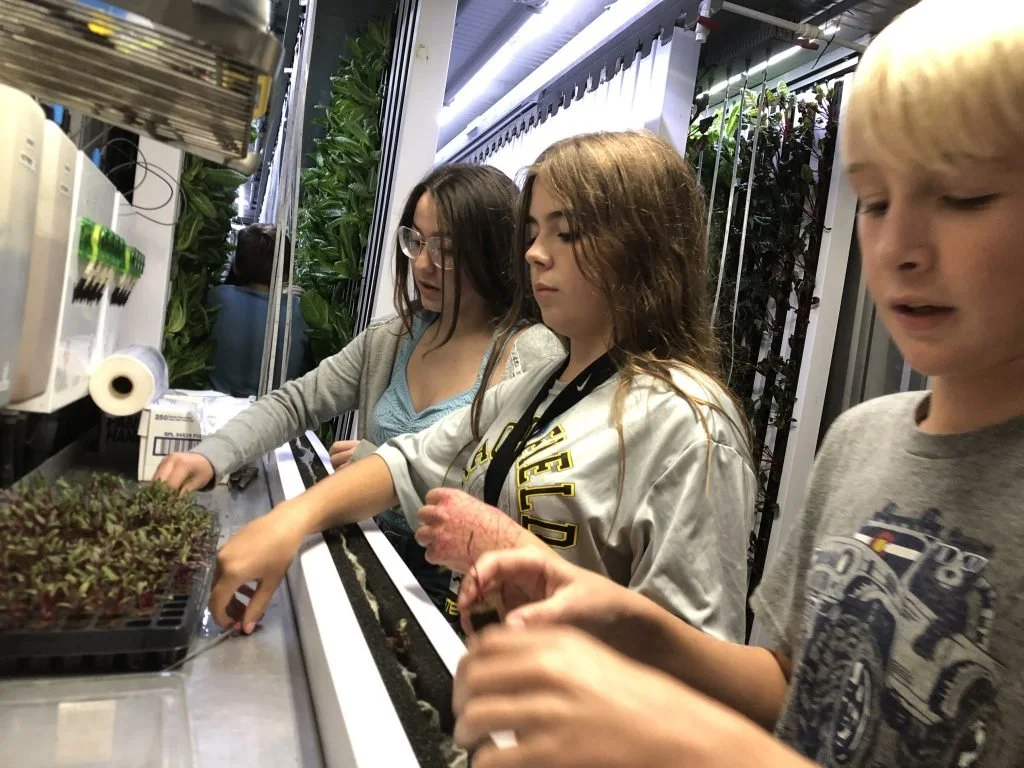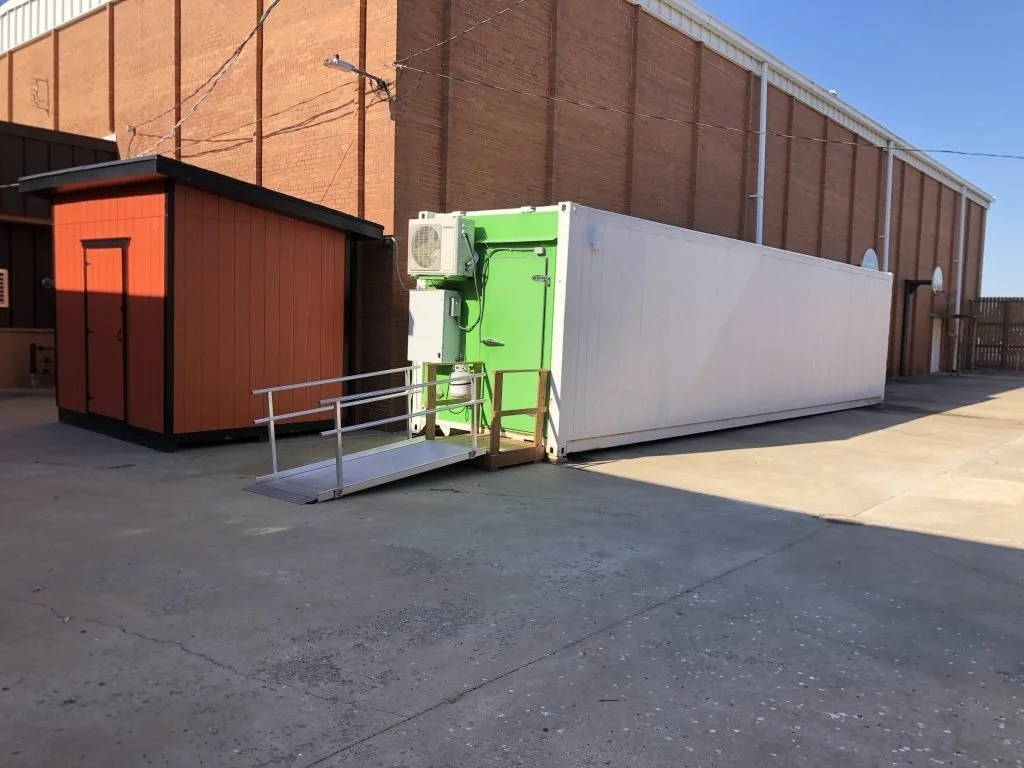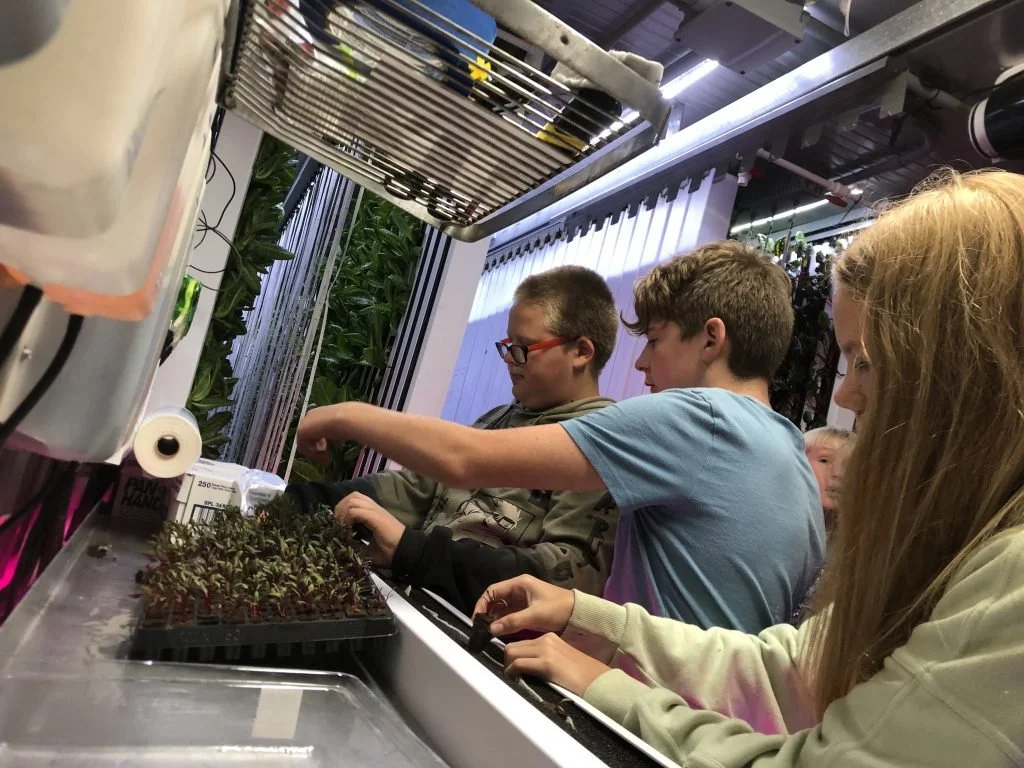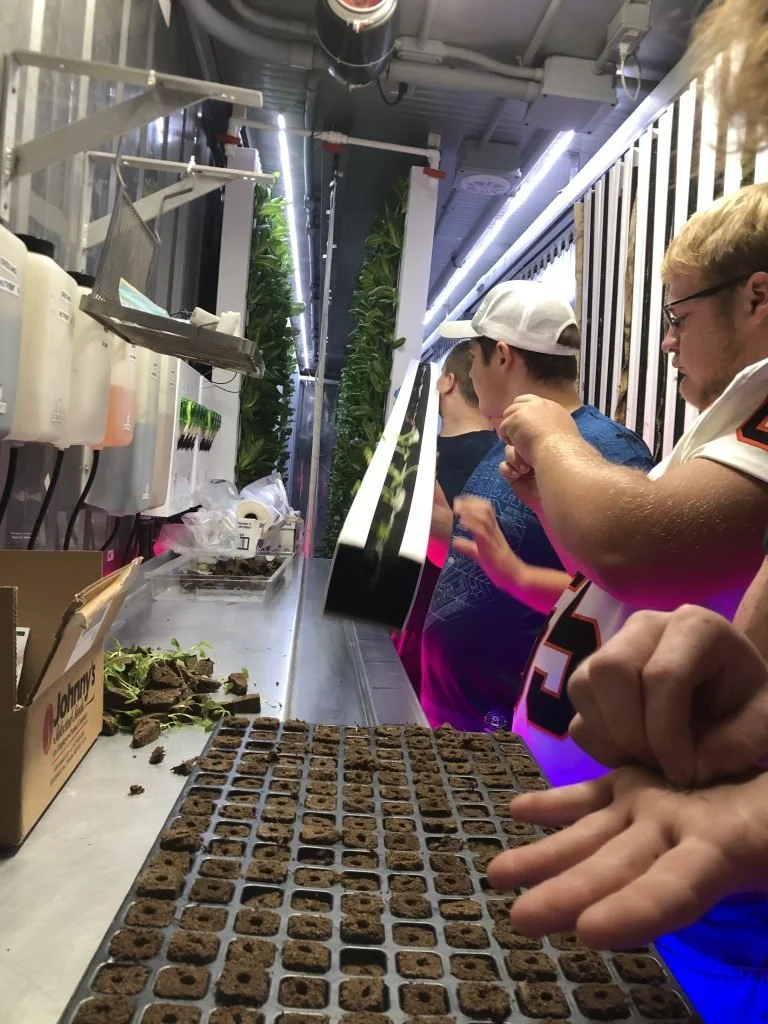USA: Kansas - Hydroponics At Uniontown Junior High: Learning and Growing Produce For The School
Students in the STEM class plant Swiss chard. L t R: Scarlett McCullough, Catherine Cox, Scout Eden
Students at the rural school in western Bourbon County now have the opportunity to gain knowledge in an up-and-coming farm business, hydroponics.
Alison Weston taken from the U235 Staff Directory.
Alison Weston teaches botany/horticulture at Uniontown Junior High School this year, and as part of this class, hydroponics is being taught.
Hydroponics is the technique of growing plants using a water-based nutrient solution rather than soil, according to https://www.nal.usda.gov/farms-and-agricultural-production-systems/hydroponics
“As a teacher, I love this unit because it is an awesome way to get kids involved and to grow a love for gardening and planting their own food,” she said. “I love gardening and this is a neat way to integrate that into the curriculum. I’d love to get a greenhouse going at some point.”
The hydroponics farm container on the campus of Uniontown High School. Submitted photo.
USD 235 was the recipient of a hydroponic shipping container farm through a grant awarded to the Kansas Division of Children and Families, USD 235 Superintendent Vance Eden said in a prior interview.
Hydrophonics is Coming to a Local School System
The Community Green Farms of Pittsburg, KS announced on September 11, 2023, that they would receive over $1,000,000 to bring seven southeast Kansas counties a vertical hydroponic container farm.
“The project is called a Leafy Greens Unit,” Weston said.
“The purpose is to help kids appreciate the food they eat and to help kids want to eat healthier by having the chance to grow their own food- there is a correlation between kids growing their own food and then wanting to try it,” Weston said.
Six botany students are involved in the production of greens, and eight students help in the Science Technology Engineering, and Math education class.
From left to right students Bradley Brown, Gus Welch, and Lily Robinson plant Swiss chard in STEM class. Submitted photos.
“The botany students are basically in charge. We are still coming up with a job schedule for them. Every day we take 10 gallons of Culligan Water into the reserve tank. Our city water has a pH that is inadequate, so this was the option chosen to get better quality water to the plants.”
Botany students work on the seedlings. (left to right) Jesse Jones, Colby Herring, Tater (Timothy) Ames, Kassen Woods. Not pictured in the horticulture class is Heston Stewart and Joseph Robinson. Submitted photo.
“We have seedlings that are watered twice a week by bottom-watering, upfront in the unit. They are planted in compressed coconut husks in trays- all soilless. No soil is used. After they have matured, about 3 weeks, they are transplanted into the towers, which are the vertical hanging towers. There is wicking material that as the watering system from above drips down on the towers, the wicking material soaks it up and drains out of the bottom of the tower. There is a drainage system below the tower so as the whole unit is at a bit of a tilt, the water drains into the reservoir.”
Twice a month someone comes from Leafy Greens in Pittsburg to check on the fertilizers and pH solutions.
” They are diluted into the water and given to the plants throughout the day. The whole system is on an automated timer so it waters every couple of hours and the grow lights are turned on every couple of hours,” Weston said.
The plants are grown vertically. Submitted photo.
The students harvest twice a week and the two cafeterias serve them to the students at lunch.
They have been growing Monte Carlo Romaine and Swiss Chard for a few months.
“Mr. Eden, Officer Trim, and the custodians were taking care of the unit over the summer before I took it over with the botany/horticulture class. We also grow large-leaf basil, and oakleaf lettuce.”
“We are just now starting some experimental plants: eggplant, kale, marigolds, violas, onions, spinach, radishes, beets, and various lettuces.”
They are supplying to the school kitchen currently, but plan to branch out to other businesses soon.








